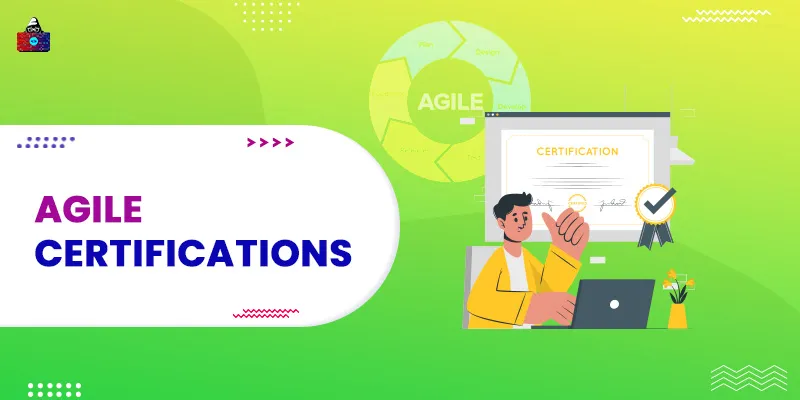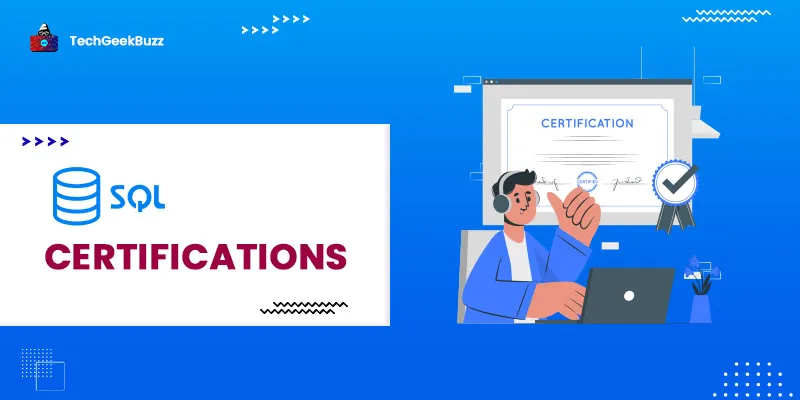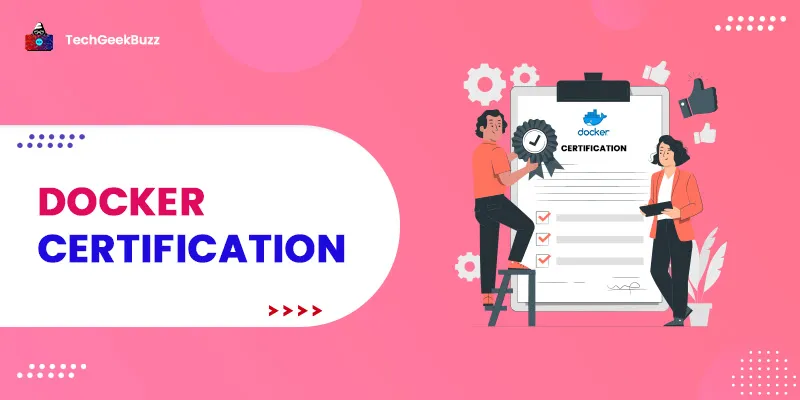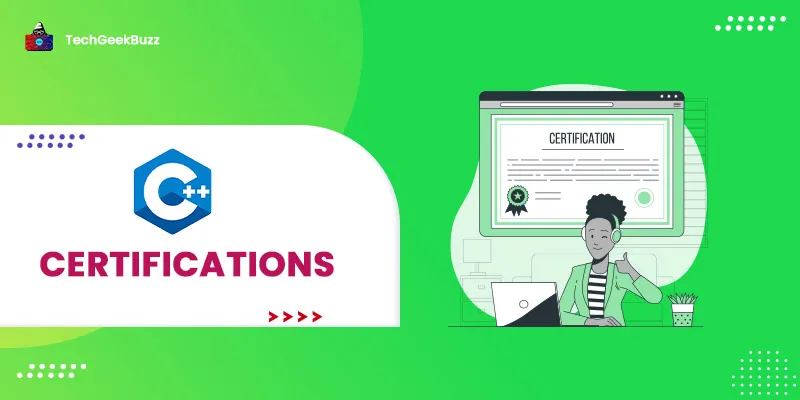This article will help you to know about the top agile certifications out there. However, before we move on to discuss the agile certification, we shall introduce you to the agile methodology in brief and the benefits of pursuing agile certifications. So, let us begin!
The software development industry is booming at a greater pace than ever before. Today, every software company aims to deliver high-quality software products and services that meet customers’ requirements in the best way possible. To accomplish this, many companies are adopting the most popular and effective approach to software development, called the agile methodology.
Agile is a widely employed approach to software development and project management that revolves around the idea of iterative development. This approach involves the continuous involvement of stakeholders in the development process to build software as per their requirements.
Since agile methodology is transforming the software development industry, several organizations are shifting to the agile approach and are looking for agile professionals who have in-depth knowledge of agile principles, tools, practices, and methods.
Therefore, pursuing a career in agile development would open up a lot of job opportunities. Pursuing an agile certification would add more value to your resume and increase the chance of getting hired quickly. If you are looking for the same but finding it difficult to choose the right agile certification, you have landed at the right place.
What is Agile Methodology?
Agile is an iterative and incremental approach to software development and project management that enables teams to build and deliver software in increments rather than delivering it as a whole at the end. The primary idea behind the agile approach is to divide a project into small chunks of user functionality called user stories.
Developers and testers work simultaneously to deliver user stories to stakeholders in two to three weeks. This time duration required to deliver each user story is called iteration.
In a nutshell, the agile approach is all about a continuous process of planning, executing, delivering, and improving until the final product that complies with customers’ requirements is developed.
Benefits of Agile Certifications
The following are the significant benefits of agile certifications at a personal level:
-
Get Hired Quickly
Since the agile approach is revolutionizing the software development industry, organizations are hiring certified agile professionals who can effectively implement agile practices. If you pursue an agile certification, there are great chances of being hired by renowned companies.
-
Improves Credibility
Possessing an agile certification means you possess a solid understanding of implementing agile practices and using various agile tools and techniques. An agile certification acts as proof that you have expertise in agile. Therefore, having an agile certification in your resume improves your credibility and attracts hiring managers.
-
Enhance Knowledge
With today’s constantly changing market environment, companies require professionals who can easily adapt to changes. Agile certifications educate professionals on how to adapt to new or changing environments and progress with those changes.
10 Best Agile Certifications to Pursue in 2023
Below is the list of the top agile certifications that you can pursue to enhance your agile expertise and get hired by renowned companies.
1. PMI Agile Certified Practitioner (PMI-ACP)
Offered By: Project Management Institute (PMI)
Project Management Institute (PMI) is a non-profit organization for project management. PMI offers Agile Certified Practitioner (ACP) certification to validate an individual’s understanding of agile techniques, methods, tools, and principles, stated in the Agile Manifesto. The PMI-ACP certification covers various agile software development methodologies, such as Kanban, Scrum, Extreme Programming, Dynamic Systems Development Method (DSDM), and Test-driven Development (TDD).
Who Should Pursue?
This certification is ideal for those who wish to validate their conceptual and practical understanding of agile principles and methods. Project and Program Managers, Agile Coaches, Project Team Members, and those who have experience working with different Agile methodologies can pursue the PMI-ACP certification.
Prerequisites
To get the PMI-ACP certification, there are certain eligibility criteria for individuals. An individual desiring to pursue this certification should:
- Hold a secondary degree.
- Must attend 21-hours of contact training in agile practices.
- Have 8 months of hands-on experience working with agile projects.
- Have 12 months of project management experience.
The PMI-ACP certification exam consists of 120 multiple-choice questions and the time duration is 3 hours.
2. Disciplined Agile Scrum Master Certification by PMI
Offered By: Project Management Institute (PMI)
The Disciplined Agile Scrum Master (DASM) certification is another certification by PMI. This certification educates you on how to lead agile teams successfully. In addition, it helps you to learn various agile methodologies and techniques, including Scrum, SAFe, and Kanban. You will get to know how to put these techniques into practice and ensure successful agile implementation.
Who Should Pursue?
The Disciplined Agile Scrum Master (DASM) certification is ideal for those who wish to kick-start their journey in agile.
Prerequisites
There are no prerequisites to earn this certification since it is intended for beginners in agile. You just have to take online self-paced or instructor-led training and complete the DASM course to receive the exam notification. Once you get the exam notification, you can appear for it and earn the certification. You need to renew this certification after one year.
3. Certified Agile Project Manager (IAPM)
Offered By: International Association of Project Managers
The International Association of Project Managers (IAPM) is a global association and certification body for project managers which offers internationally-recognized certifications for agile project management. IAPM offers Certified Agile Project Manager certification that intends to teach everything about agile methods and techniques and ways to put them into practice.
Who Should Pursue?
Certified Agile Project Manager is an entry-level certification that is ideal for those who possess the basic knowledge of agile project management.
Prerequisites
There are no prerequisites to earn this certification since it is a beginner-level certification. However, project management experience would be an advantage. The duration of the certification exam is 80 minutes, and the questions are based on the Agile Project Manager’s Guide (IAPM). This guide primarily consists of three sections, as follows:
- Section 1: This section helps you know everything about agile methodologies, including Scrum, Kanban, and Extreme Programming.
- Section 2: This section answers various questions: What is the best way to work in a team? Which is the best strategy to follow under stress?
- Section 3: This section explains different IAPM certification levels and processes.
4. Agile Project Management (AgilePM) from APMG
Offered By: Association of Project Managers Group (APMG)
International APMG International is a global certification body that accredits organizations to provide training courses for an array of professional certification schemes. Agile Project Management (AgilePM) is one of the certifications by APMG International that verifies individuals’ understanding and expertise in agile principles and methodologies. There are two levels of AgilePM certification, namely AgilePM Foundation and AgilePM Practitioner.
- AgilePM Foundation: This foundational-level certification helps you learn agile principles, the lifecycle of an agile project, agile techniques, and roles and responsibilities with an agile project.
- AgilePM Practitioner: This certification educates you on how to implement various agile practices into a project, how to test, estimate, and evaluate profit in an agile project, and how to prioritize agile project requirements.
Who Should Pursue?
AgilePM Foundation is ideal for practicing project managers and individuals who are looking forward to pursuing the AgilePM Practitioner certification.
Prerequisites
There are no prerequisites to earning the AgilePM Foundation certification. But it is essential to possess the AgilePM Foundation certification to pursue AgilePM Practitioner. The examination for AgilePM Foundation and AgilePM Practitioner certifications is an open-book objective exam consisting of 4 objective questions, each question carries 20 marks, and the duration is 2.5 hours.
5. Agile Scrum Foundation
Offered By: EXIN
EXIN is an international organization that offers various certifications to individuals across the globe in different languages. Agile Scrum Foundation is one of the agile certifications offered by EXIN. As its name suggests, the Agile Scrum Foundation certification validates candidates for their expertise in Agile management practices and the Scrum framework. This certification covers topics such as Agile practices, Scrum practices, Scrum planning and estimation, and advanced scrum concepts.
Who Should Pursue?
This certification is ideal for professionals working in various sectors, including software development, project management, business management, and IT service management.
Prerequisites
To pursue the Agile Scrum Foundation certification, one must attend EXIN-accredited Agile Scrum Foundation training. The certification consists of 40 multiple-choice questions and the duration is 1 hour.
6. Certified Scrum Master (CSM) from Scrum Alliance
Offered By: Scrum Alliance
Scrum Alliance is one of the largest certification and membership organizations for agile and scrum. This organization lets other companies adopt scrum for their businesses. It offers Certified Scrum Master (CSM) certification. This certification intends to educate you on the practical ways to implement Scrum in your organization. You will gain knowledge on Scrum roles, artifacts, and ceremonies to lead your team.
Who Should Pursue?
This certification is ideal for anyone who wishes to become a Scrum Master. It is considered the gold standard of certification and is suitable for professionals in the roles such as Product Owners, Product Managers, and other managerial positions.
Prerequisites
Before appearing for the certification exam, it is mandatory to go through 16-hour training by a Certified Scrum Master. The certification exam consists of 50 multiple choice questions and the duration is one hour.
7. Certified Scrum Product Owner (CSPO) from Scrum Alliance
Offered By: Scrum Alliance.
Certified Scrum Product Owner (CSPO) is another certification from Scrum Alliance. A product owner is one of the most demanding roles in agile teams. He/She is responsible for deciding what the team will produce next in order to deliver the quality product to customers. Through this certification, you will learn everything about the Scrum framework, principles, values, and essential skills and tools to make Scrum more effective. In addition, you will learn to juggle multiple stakeholders’ requirements and get hands-on practice creating a product vision.
Who Should Pursue?
This certification is ideal for Project Managers, Business Analysts, and others who desire to lead Scrum teams, deliver high-quality products, and effectively collaborate with customers.
Prerequisites
Before appearing for the CSPO certification exam, you need to attend 16-hour or 2-day training offered by Scrum Alliance. CSPO is a participation-based certification. There is no exam to earn this certification. You only have to attend a 16-hour training by Certified Scrum Trainer (CST).
8. Professional Scrum Master (PSM) from Scrum.org
Offered By: Scrum.org
Scrum.org is a mission-based organization that helps people and teams solve complex business problems by providing Scrum courses, certifications, and training on a common competency model. It provides the Professional Scrum Master (PSM) certification, which intends to educate candidates on the Scrum and Agile principles and the role of Scrum Master.
Who Should Pursue?
This certification is intended for practitioners who wish to kick-start their careers as Scrum Master. Also, it is ideal for Scrum masters and consultants who want to hone their skills in Scrum.
Prerequisites
There are no certain prerequisites, but candidates attending the Professional Scrum Master (PSM) course will get a password to appear for the PSM assessment. The PSM certification exam consists of 80 questions in varied formats and the duration is one hour.
9. SAFe Agilist (SA)
Offered By: Scaled Agile
SAFe stands for Scrum Agile Framework. It is a system for implementing Agile, Lean, and DevOps practices at scale. Scaled Agile is the leading provider of SAFe and offers a variety of certifications, courses, and training programs that help businesses bring agility to their operations. The SAFe Agilist (SA) certification by Scaled Agile is one of the most popular certifications in agile. Through this certification, you will gain deep insights into the SAFe framework. It provides you with the knowledge that is helpful for transforming your business into an Agile-Lean workplace.
Who Should Pursue?
This certification is ideal for Project Managers, Scrum Masters, Team Leads, and anyone who wishes to be a part of Agile-Lean Transformation.
Prerequisites
The only prerequisite to appear for the SA certification exam is to attend 21-hour training by an ICAgile certified training partner. This certification exam consists of 45 multiple-choice questions and the duration is 90 minutes.
10. Agile Scrum Master from EXIN
Offered By: EXIN Agile
Scrum Master is yet another popular agile certification from EXIN that brings together Agile principles and Scrum practices. This certification covers topics such as the Scrum Master role, ways to adopt agile, and agile estimating, planning, monitoring, and control.
Who Should Pursue?
The Agile Scrum Master certification is ideal for professionals working in an Agile context who wish to become a Scrum Master to facilitate a Scrum Team.
Prerequisites
It is mandatory to attend training provided by EXIN registered education partners to earn the Agile Scrum Master certification. The certification exam consists of 40 multiple-choice questions and the duration is one hour 30 minutes. You can refer to the EXIN Handbook for Scrum Masters & Product Owners to ace the certification exam.
Conclusion
The aforementioned agile certifications are among the most popular and widely pursued certifications. You can opt for any of the above certifications to advance your career in agile. Before choosing any certification, make sure to go through its prerequisites carefully. We hope this curated list of agile certifications will help you to choose the one that is the right fit as per your needs.
People are also reading:





Leave a Comment on this Post